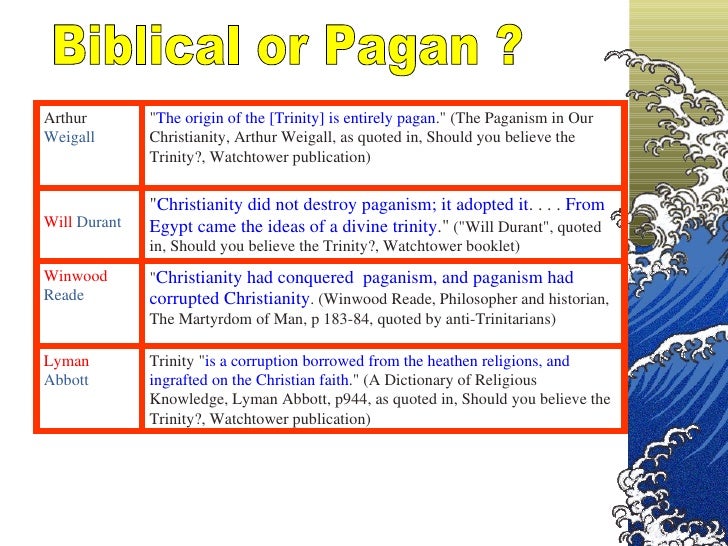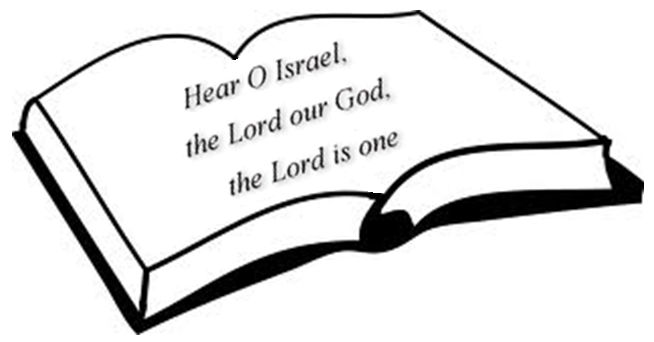Bible, Christ & Christianity: بائبل، یسوع مسیح اور عیسائیت
“There is ONE God and one mediator between God and man, the HUMAN BEING Messiah Jesus” (1 Tim. 2:5). "I ALONE AM GOD! I AM GOD and there is NONE LIKE ME"[Isaiah 46:9] "How can you say, 'We are wise, And the law of the LORD is with us'? But behold, the lying pen of the scribes made it a lie[Jeremiah 8:8]
Featured Post
Who is Jesus?
The suggestion that Jesus is not, according to the Bible, “very God of very God” is likely to prove startling to those accustomed to th...
Wednesday, November 1, 2023
Thursday, March 10, 2022
Christian Zionism: Heresy, Cult or New Religion?
Wars have been part of human civilization but the last two centuries have witnessed constant deadly wars resulting in the killing and displacement of millions of people. Whenever one make an effort to deeply analyze the reasons, religious element and especially the Zionist Judaism figures out. The Jews are small in numbers so are the Zionist Jews, then how they can create so much troubles? The real reason not known to many people is the Christen Zionism. The heretical group, like a cult created among the Christians during the last two centuries. This is non Biblical, hence rejected and denounced by the oldest Christians, the Catholic and Orthodox Churches. A new Bible had to be created to get justification for this heresy. This Cult has a strong lobby and politically controls main stakeholders in US corridors of power. They please Jewish Zionists in the USA, world wide and Israel, act as their tool.
This is an effort to introduce this heretic Christian cult responsible for turmoil, threat to world peace by causing wars, oppression and abuse of human rights around the globe on fabricated religious assumptions.
This book is based on the series of articles published in a magazine. It contains essential information to comprehend the main reason for continuous conflicts and wars. May continue reading the embedded book or may consider following options:
- English Webook: https://.SalaamOne.com/Christian-Zionism
- e-Book English pdf: https://bit.ly/ChristianZionism-pdf
- UrduSummary G Doc: :https://bit.ly/Christian-Zionism-Urd
- PdfUrdu: https://goo.gl/f5Wg9E
Thursday, January 13, 2022
Index
- Christianity conquered paganism and paganism corrupted Christianity
- Jesus is not God : Proved through 90 verses from Bible
- Paul of Tarsus & his Theology opposed to Jesus Christ
- توحید اور بائبل :Monotheism in Bible
- Front Page
- Paul suffered from Temporal Lobe Epilepsy
- بائبل کے مطابق یسوع کون ہے؟ خدا کا بیٹا یا بندہ ?
- Who is Jesus according to Bible, Son of God or Servant
Christian Zionism: Threat of World Peace
Monday, January 10, 2022
True Message of Jesus Christ and Theology of Paul
Jesus said to him, "'You shall love the Lord your God with all your heart, and with all your soul, and with all your mind.' This is the first and great commandment. A second likewise is this, 'You shall love your neighbor as yourself.' The whole law and the prophets depend on these two commandments."
Wednesday, November 17, 2021
The Development of Doctrinal Christianity By H.G. Wells (1866–1946). A Short History of the World. 1922 نظریاتی عیسائیت کا ارتقاء
Wednesday, November 21, 2018
Who is Jesus?
A difference of opinion on such a fundamental issue should challenge all of us to an examination of the important question of Jesus’ identity. If our worship is to be, as the Bible demands, “in spirit and in truth” (John 4:24), it is clear that we will want to understand what the Bible discloses about Jesus and his relationship to his Father. Scripture warns us that it is possible to fall into the trap of believing in “another Jesus” (2 Cor. 11:4)—a “Jesus” other than the one revealed in the Bible as God’s Son, the Messiah promised by the prophets of the Old Testament.
It is a striking fact that Jesus never referred to himself as “God.” Equally remarkable is the New Testament’s use of the word “God”—in Greek ho theos—to refer to the Father alone, some 1325 times. In sharp contrast, Jesus is called “god” in a handful of texts only—perhaps no more than two. Why this impressive difference in New Testament usage, when so many seem to think that Jesus is no less “God” than his Father?
Who Is Jesus?
Thursday, May 4, 2017
Front Page
- Free your mind of all your existing beliefs & ideas.
- If you are a Christian, take "Red or Blue lettered Gospels", pen , marker and papers. Start reading Gospels, slowly, gradually, take your time, don't be in hurry.
- Underline, highlight, note down the teachings, sayings of Jesus Christ what he physically and openly preached to people and 12 disciples, not in "VISIONS or Dreams". [Thomas Jefferson's Experience]
- Discard what is not common in four Gospels. Critically examine it, accept what is clear, obvious your are near to the Truth, discard any belief which is ambiguous, not clearly , openly preached by Jesus Christ.
- Look around for people who you find practicing closer to the real teachings of Jesus Christ. Seek their assistance.
- Continue with your quest for Truth till you find it. Keep praying to God for His help. Onus lies with Him.
- Keep exploring, keep reading .......... This site will assist in this regards.
Christianity conquered paganism and paganism corrupted Christianity

Wednesday, December 14, 2016
Muhammad in Bible

Monday, November 21, 2016
توحید اور بائبل :Monotheism in Bible





